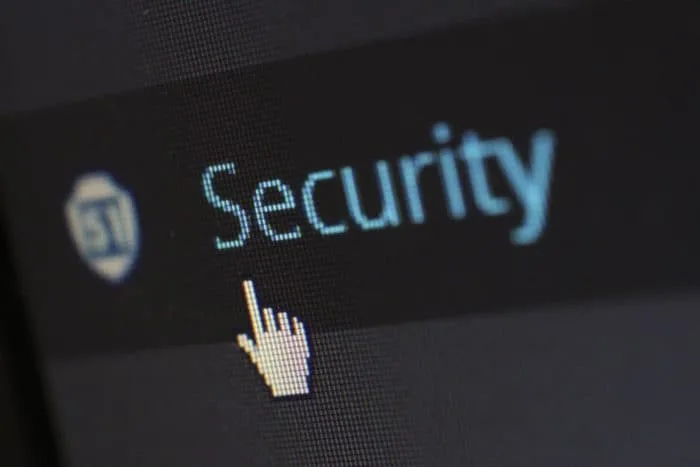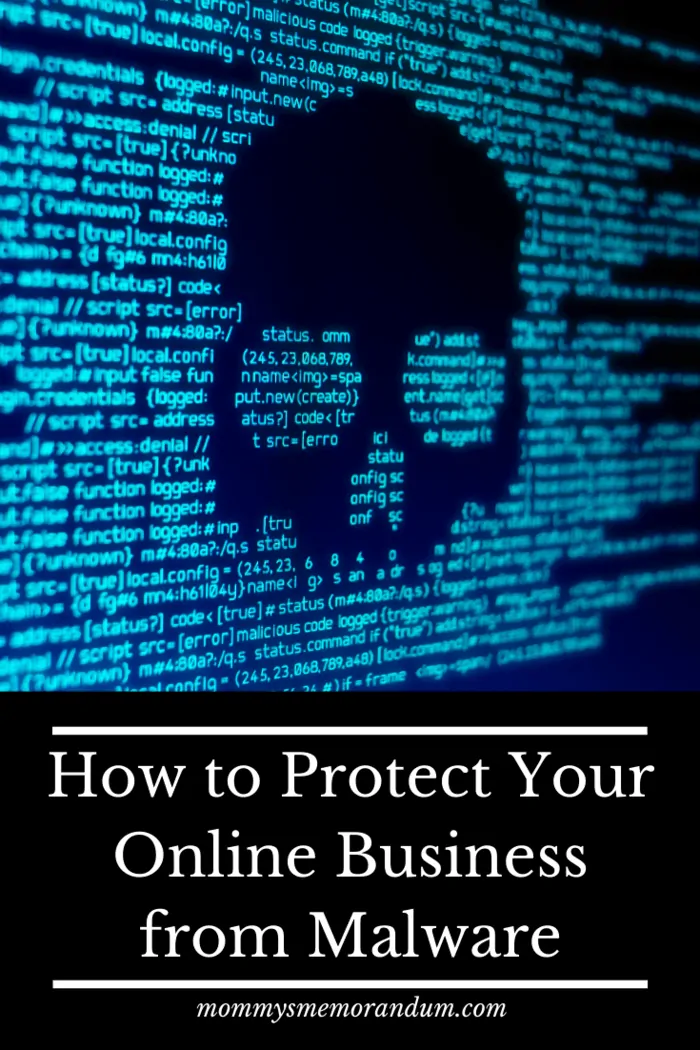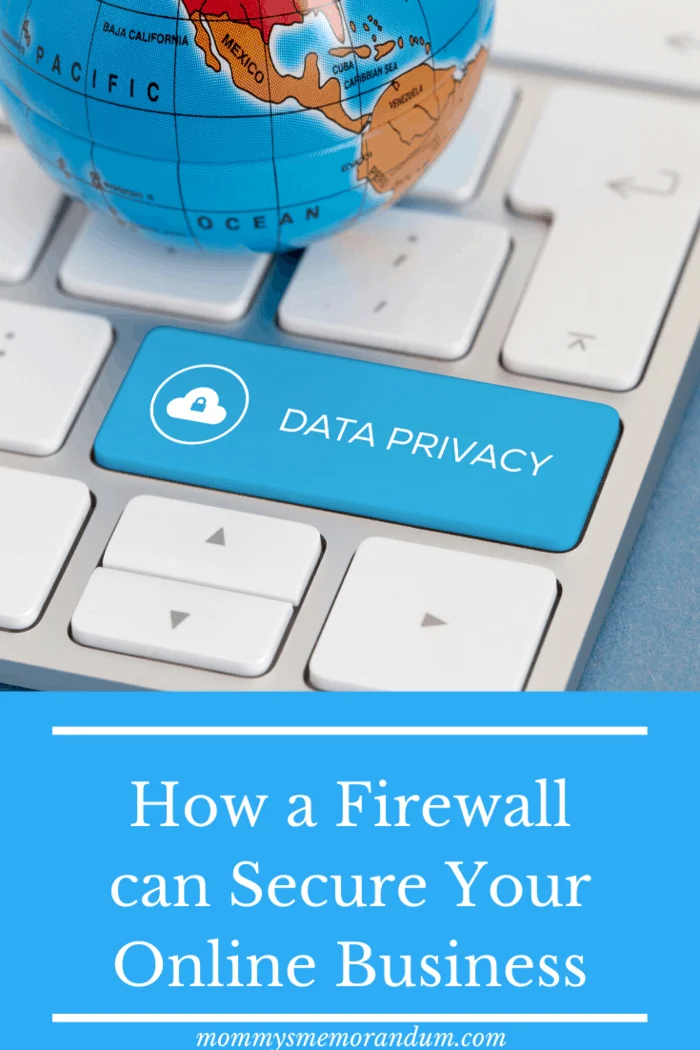Safeguard Your Home Business: Strengthening Online Security for Success
In today’s digital landscape, where home-based businesses are thriving, it’s crucial to prioritize cybersecurity before delving into marketing campaigns or enhancing service offerings. As emphasized by Nordpass, a leading cybersecurity advocate, dedicating time to contemplate your online security is paramount.
While your business may be small in scale and operate from the comfort of your home, safeguarding yourself against online threats, much like protecting your physical property from intruders, is equally significant. Just as you rely on an alarm system to maintain the safety of your living space, taking proactive measures to shield your digital presence is a necessity.
It’s probable that you’ve taken precautions to protect your physical belongings by opting for homeowner’s or renter’s insurance, ensuring coverage against theft, fire, and unforeseen catastrophes. Although these measures provide a sense of safety and security, they alone cannot shield your business from the perils lurking in the virtual realm. To fortify your defense against virtual intruders, it is imperative to take additional steps.
In this comprehensive article, we will delve into the world of malware, shed light on the importance of an online firewall tester, and provide you with the necessary insights to craft a robust online security plan. By understanding the nature of malware and its potential consequences, evaluating the effectiveness of your firewall, and implementing a well-defined security strategy, you can establish a resilient defense system for your home business.
Join us as we explore the realm of online security, empowering you with knowledge and practical tips to safeguard your business, maintain the trust of your customers, and ensure your continued success in the ever-evolving digital landscape.

Is Your Home Business Secure Online?
1. Invest in quality malware protection.
If you’ve ever had a virus infect your home computer, laptop, or mobile device, you know it can cost valuable time and money. All business electronic devices with internet capabilities are vulnerable to the same viruses. That includes ransomware attacks that can jeopardize confidential client information and passwords for your banking and payment services. Think about the impact your business would face if you were to lose all of the files saved on your computer. You may have backups to restore those files, but you still need quality malware protection to ensure sensitive information doesn’t fall into the wrong hands, says VMware. One of the best anti-malware software is Malwarebytes that scans for and removes malicious software, including rogue security software, adware, and spyware. Malware programs are installed onto your computers and mobile devices. You can set them to run automatic scans on a routine basis, identifying and removing viruses, worms, Trojans, and other threats before they put your business at risk. The best programs will also flag risky or compromised websites before you click on them when online. Make sure that your chosen malware protects every device used for business purposes. The FCC also recommends setting your malware software to scan your computer after every system update.
Investing in quality malware protection is a crucial step in keeping your home business secure online. Malware, short for malicious software, encompasses a broad range of digital threats such as viruses, worms, ransomware, and spyware. These harmful programs can infiltrate your computer systems, compromise your sensitive data, and disrupt your business operations.
By allocating resources towards robust malware protection, you can benefit in several ways:
- Defense against Cyber Threats: Quality malware protection software acts as a shield, continuously scanning and monitoring your systems for any signs of malicious activity. It can detect and neutralize various types of malware, preventing them from causing harm to your business. This proactive approach ensures that your sensitive information, financial data, and intellectual property remain secure.
- Prevention of Data Breaches: A data breach can be catastrophic for any business, leading to financial losses, damaged reputation, and potential legal repercussions. Investing in quality malware protection significantly reduces the risk of data breaches by preventing unauthorized access to your systems and thwarting attempts to steal or compromise sensitive information. It acts as a vital line of defense in safeguarding your customers’ personal data and maintaining their trust.
- Enhanced Productivity and Reliability: Malware attacks can cripple your computer systems, resulting in downtime and disrupted operations. By investing in robust malware protection, you can minimize the risk of system failures, crashes, and slowdowns caused by malware infections. This ensures uninterrupted workflow, enhances productivity, and saves you valuable time and resources that would otherwise be spent on recovering from security breaches.
- Safeguarding Online Transactions: If your home business involves online transactions, ensuring the security of payment information is paramount. Quality malware protection can shield your customers’ financial details from being intercepted by cybercriminals during transactions, thereby reducing the risk of financial fraud and protecting the integrity of your business.
- Proactive Threat Detection and Updates: Reputable malware protection solutions provide regular updates to stay ahead of emerging threats. These updates include patches and security fixes that address newly discovered vulnerabilities, ensuring that your systems are protected against the latest malware strains. By investing in quality software, you gain access to continuous threat detection and timely updates, thereby bolstering your defense against evolving cyber threats.
Remember, in the digital landscape, cybercriminals are constantly evolving their tactics to exploit vulnerabilities. Therefore, investing in quality malware protection is an essential step to fortify your home business against potential threats, safeguard your data, and maintain the trust of your customers. It is a proactive investment in the long-term security and success of your online endeavors.

2. Install a firewall.
Doors, windows, walls protect your home, and a roof. Imagine giving your cyber assets the same protection. That’s exactly what you do when you install a firewall. You create a virtual barrier around your business network and then set security parameters that prevent unauthorized entities from gaining access. The traffic flowing in and out of your network is constantly monitored, so you’re protected even while sleeping or on vacation. How do you install a firewall? It’s simply a software package that you download directly to your computer. If you have employees working from home, ensure that their home networks are protected with a firewall.
Installing a firewall is a fundamental step in keeping your home business secure online. A firewall acts as a protective barrier between your internal network and the vast and often unpredictable world of the internet.
By implementing a firewall, you can achieve the following benefits:
- Network Traffic Control: A firewall enables you to regulate and control incoming and outgoing network traffic. It analyzes data packets and determines whether to allow or block them based on predefined security rules. This helps prevent unauthorized access to your network and systems, ensuring that only legitimate and trusted connections are established.
- Intrusion Detection and Prevention: Firewalls are equipped with intrusion detection and prevention capabilities. They monitor network activity for suspicious or malicious behavior, such as unauthorized access attempts or unusual traffic patterns. When potential threats are detected, the firewall can take immediate action to block the malicious activity, preventing it from compromising your systems or extracting sensitive information.
- Protection Against External Threats: In the digital landscape, various external threats, such as hackers, malware, and phishing attacks, are constantly targeting businesses. A firewall acts as a first line of defense, shielding your network and systems from these threats. It helps block malicious traffic, such as unauthorized attempts to exploit vulnerabilities or gain unauthorized access to your network, thereby reducing the risk of data breaches and unauthorized data exfiltration.
- Safeguarding Sensitive Data: As a home business, you likely handle sensitive information, including customer data, financial records, and intellectual property. A firewall adds an extra layer of protection by preventing unauthorized access to this valuable information. By implementing stringent access controls and encryption protocols, the firewall ensures that sensitive data remains confidential and inaccessible to unauthorized individuals or malicious actors.
- Content Filtering: Firewalls can include content filtering capabilities, allowing you to control the types of content that can be accessed from within your network. This feature enables you to block or restrict access to potentially harmful or non-work-related websites, reducing the risk of employees inadvertently downloading malware or accessing malicious content that could compromise your business’s security.
- VPN Connectivity: Many firewalls offer virtual private network (VPN) functionality, which enables secure remote access to your network. If you or your employees work remotely or need to connect to your network from external locations, a firewall with VPN capabilities ensures that these connections are encrypted and secure, protecting sensitive data transmitted over the internet.
By installing a firewall, you establish a robust perimeter defense for your home business, mitigating the risk of unauthorized access, data breaches, and malicious activity. It serves as a crucial component of your overall cybersecurity strategy, working in conjunction with other security measures to create a layered defense that helps keep your business secure online.

3. Use Small Biz Cyber Planner 2.0 to create a customized cybersecurity plan.
The FCC offers a free online planner that allows small businesses to create personalized cybersecurity strategies. The planner includes 12 security areas that are important for small businesses, and you can decide which ones to include in your final plan. You only need to give your business’s name and basic location information to create a custom cybersecurity strategy in just minutes. Cybercriminals are becoming savvier and building a powerful digital arsenal that allows them to attack without warning. They can turn a growing business into a struggling or even a failing business overnight. The good news is that quality malware protection and other security measures can stop you from becoming a cyber victim.
Using Small Biz Cyber Planner 2.0 can be an effective approach to creating a customized cybersecurity plan for your home business. Small Biz Cyber Planner 2.0 is an online resource developed by the Federal Communications Commission (FCC) that provides small businesses with a step-by-step guide to assess their cybersecurity risks and develop tailored strategies to mitigate those risks.
Here’s how it can help:
- Risk Assessment: Small Biz Cyber Planner 2.0 assists you in conducting a comprehensive risk assessment for your home business. It guides you through a series of questions and checklists to evaluate your current security practices, identify potential vulnerabilities, and understand the specific threats your business may face. This assessment lays the foundation for developing a cybersecurity plan that addresses your unique needs.
- Customized Recommendations: Based on the information gathered during the risk assessment, Small Biz Cyber Planner 2.0 generates customized recommendations and action items. These recommendations are tailored to your business size, industry, and specific vulnerabilities identified. They cover a wide range of cybersecurity areas, such as network security, data protection, employee training, and incident response.
- Prioritization and Implementation: The planner helps you prioritize the recommended security measures based on their criticality and potential impact on your business. It assists in creating a roadmap for implementation, breaking down the tasks into manageable steps. By following this guidance, you can systematically address your vulnerabilities and enhance your cybersecurity posture over time.
- Resource Library: Small Biz Cyber Planner 2.0 provides access to a comprehensive resource library, which includes useful links, articles, and tools to help you understand and implement various cybersecurity measures. This library can serve as a valuable reference, offering insights into best practices, industry standards, and additional cybersecurity resources.
- Ongoing Maintenance and Updates: Cybersecurity is an ongoing process that requires regular evaluation and updates. Small Biz Cyber Planner 2.0 encourages periodic reviews of your cybersecurity plan to adapt to evolving threats and changes in your business environment. It helps you stay proactive in maintaining a strong security posture and ensures that your plan remains relevant and effective over time.
By utilizing Small Biz Cyber Planner 2.0, you can create a customized cybersecurity plan that aligns with your home business’s specific needs and resources. It empowers you to identify and address potential vulnerabilities, implement appropriate security measures, and establish a framework for continuous improvement. Taking proactive steps to protect your digital assets and sensitive information can enhance your business’s resilience and instill trust among your customers and partners.

Final Thoughts:
In today’s interconnected world, securing your home business online is a critical responsibility. Neglecting cybersecurity can expose your business to a multitude of threats, ranging from data breaches to financial losses and damage to your reputation. By prioritizing cybersecurity and implementing robust measures, you can protect your business, customer data, and intellectual property from malicious actors.
Investing in quality malware protection helps detect and neutralize potential threats, safeguarding your systems and sensitive information. Installing a firewall establishes a strong defense against unauthorized access, external threats, and potential data breaches. It acts as a barrier between your network and the internet, filtering and controlling network traffic to ensure secure communication.
Moreover, leveraging resources like Small Biz Cyber Planner 2.0 enables you to create a customized cybersecurity plan tailored to your home business. By conducting a risk assessment, receiving personalized recommendations, and implementing security measures, you can fortify your defenses and stay ahead of evolving threats.
Remember that cybersecurity is an ongoing process. Regular maintenance, updates, and employee training are vital to maintaining a robust security posture. By staying proactive and informed about the latest cybersecurity practices and trends, you can ensure the long-term security, success, and sustainability of your home business.
Prioritizing cybersecurity not only protects your business but also demonstrates your commitment to safeguarding the interests of your customers and stakeholders. By fostering a secure online environment, you build trust, enhance your reputation, and position your home business for sustained growth and prosperity in the digital era.
Having a cybersecurity plan helps protect your business from cyberattacks that can shut down your company, create a data breach that will lose trust with your clients, and get you back up and running sooner if a cyber-attack does happen.
Hackers are smart; make your cybersecurity plan smarter.
